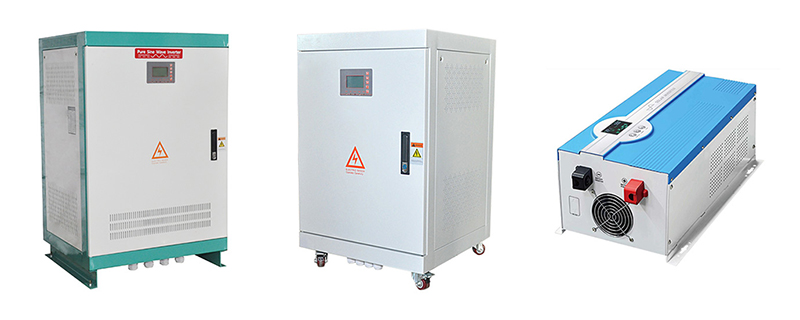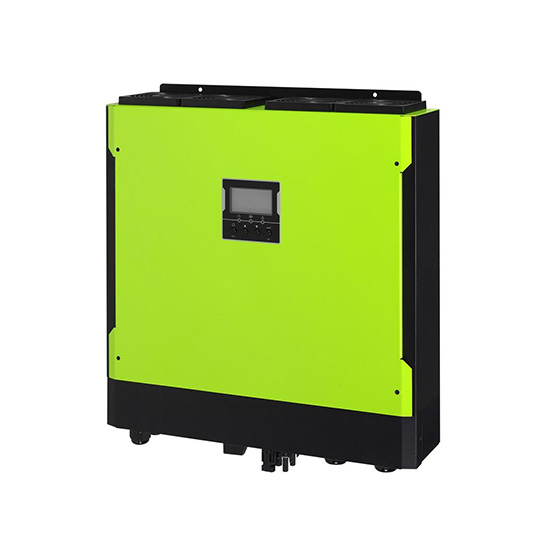An inverter is often called the brain of a solar system because it converts solar radiation into useful energy. There are different types of inverters available in the market: on grid inverters, off-grid inverters and hybrid inverters are the types available in the market. In order to choose the right inverter, it is important to list your needs. The one you choose depends mainly on your solar installation and energy consumption.
What is off grid inverter?
Off-grid inverters are designed to work alone and cannot synchronise with the grid. They connect to the property in place of grid power and cannot work in conjunction with it. Off grid inverters must supply power from DC to AC instantly to power the appliances. Off-grid inverters do not have any connection to the utility grid. In short, an off-grid inverter gets its DC power from a battery source that is charged using a solar array. Therefore, the main advantage is that it can operate even in the event of a grid failure. These inverters are also called stand-alone inverters. The attractive feature of off-grid inverters is that they are cheaper than hybrid inverters. The main problem with off-grid inverters is power outages. It does not work with the utility grid. As a result, the electricity generated through solar power alone may not meet the demand, especially if there is no sun exposure.
What is hybrid solar inverter?
Hybrid inverters are also known as multimode inverters. A hybrid solar inverter is a mix of solar inverter and battery inverter into one device. This feature helps to easily control the power from solar panels, solar cells and utility grid at the same time. The biggest advantage of such inverters is that they offer a lot of flexibility in power delivery by choosing between solar, battery backup and grid connection. In addition to this, you can reduce the need for separate batteries by choosing a hybrid converter. This is possible because it can be used both as a battery and as an inverter. Hybrid inverters are commonly used in areas with frequent power outages, failures, and load shedding.
The main advantage of hybrid solar inverters is that when the solar energy generated is not enough to run the load, the excess power can be drawn from the grid. In addition to this, the batteries provide backup power in case of grid failure. Thus, hybrid inverters provide a constant power supply and you do not have to worry about power outages.
Difference between a hybrid inverter and an off-grid inverter
A hybrid inverter generates electricity in exactly the same way as a regular string solar inverter. The difference is that it has a built-in battery connection that stores energy for later use. This battery backup capability allows most hybrid systems to operate as a backup power source even during a power outage.
The off-grid inverter takes power from the batteries, converts it from DC, and outputs AC power. Off-grid inverters cannot be synchronized with the utility grid. These are designed to work independently. Off-grid inverters cannot feed power from solar or batteries into the utility grid. On the other hand, a hybrid inverter can feed power to the utility grid.
Differences in the operation of hybrid and off-grid systems
A hybrid system is a combination of solar and battery storage in the same device. The system is also connected to the utility grid. In this system, once the batteries are fully charged, the excess solar energy can be exported to the grid. When the batteries are depleted, the grid provides backup power. There is no utility grid in an off-grid system. Here, the excess power is stored in the battery pack. Once the battery is fully charged, it will stop receiving power from the solar system.

"In this system, once the batteries are fully charged, the excess solar energy can be exported to the grid."